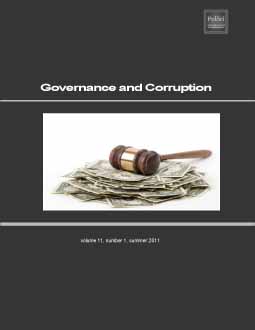Governance Reforms and Anti-Corruption Commission in Bangladesh
Governance Reforms and Anti-Corruption Commission in Bangladesh
Author(s): Syeda Naushin ParniniSubject(s): Politics / Political Sciences
Published by: Societatea Academică Română (SAR)
Keywords: Good governance; governance reforms; anti-corruption; political underdevelopment
Summary/Abstract: In the last few years, international anti- corruption activities and campaigns have become increasingly prominent in Western efforts to promote political reform and 'good governance'. Since 1990s, proponents of governance reforms i.e. the donors linked political corruption to the explanation of developmental failure, thereby identifying the arguments for democratization and 'good governance' with those for liberalization. Governance reform has been a recent trend for Bangladeshi Government to take anti-corruption measures and to operate Anti-Corruption Commission (ACC), which has been considered as a distinct national agency charged with combating corruption. The donors have all promoted the establishment of such ACC in Bangladesh, claiming that it can form an integral part of a country’s “national integrity system.” However, the experiences of Bangladeshi anti-corruption measures and the role of ACC are mixed. The question remains whether the anti-corruption commission represents a genuine commitment on the part of Bangladeshi government in its anti-corruption strategy, or whether it is merely a façade, established to simply placate the international donors. This paper explores the way in which corruption has been understood in the 'governance' agenda and the efforts that have been made to control it by improving institutional performance and policing for greater transparency and accountability particularly through ACC in Bangladesh.
Journal: Romanian Journal of Political Sciences
- Issue Year: 11/2011
- Issue No: 01
- Page Range: 50-70
- Page Count: 21
- Language: English
- Content File-PDF

